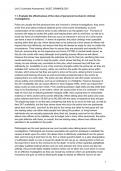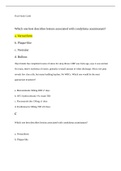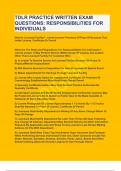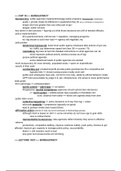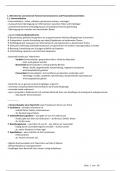Essay
controlled assessment
- Module
- Criminology
- Institution
- WJEC
I scored 90/100 on this controlled assessment, which is a grade A. WJEC needs you to score A across all 4 units to achieve an A*. DO NOT PLAGARISE THIS, as your examination will come to an automatic fail. Use this to make your controlled assesment notes for the unit, and it should help you
[Show more]
